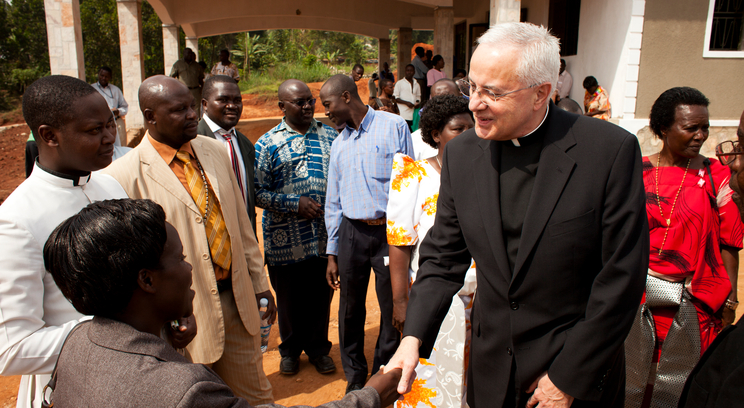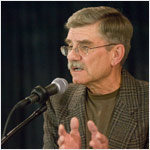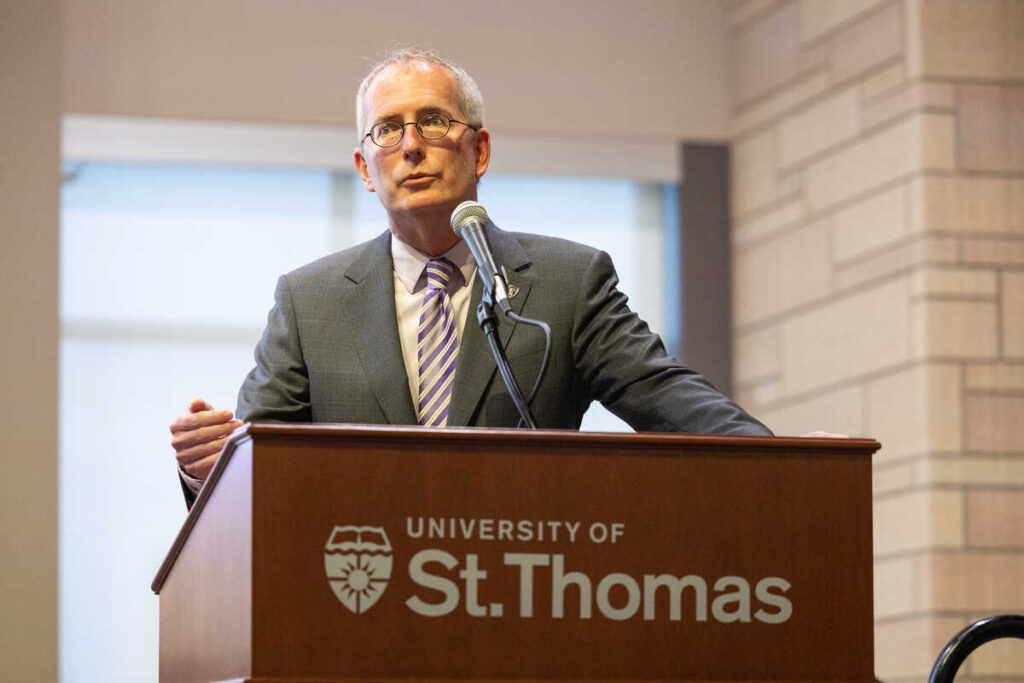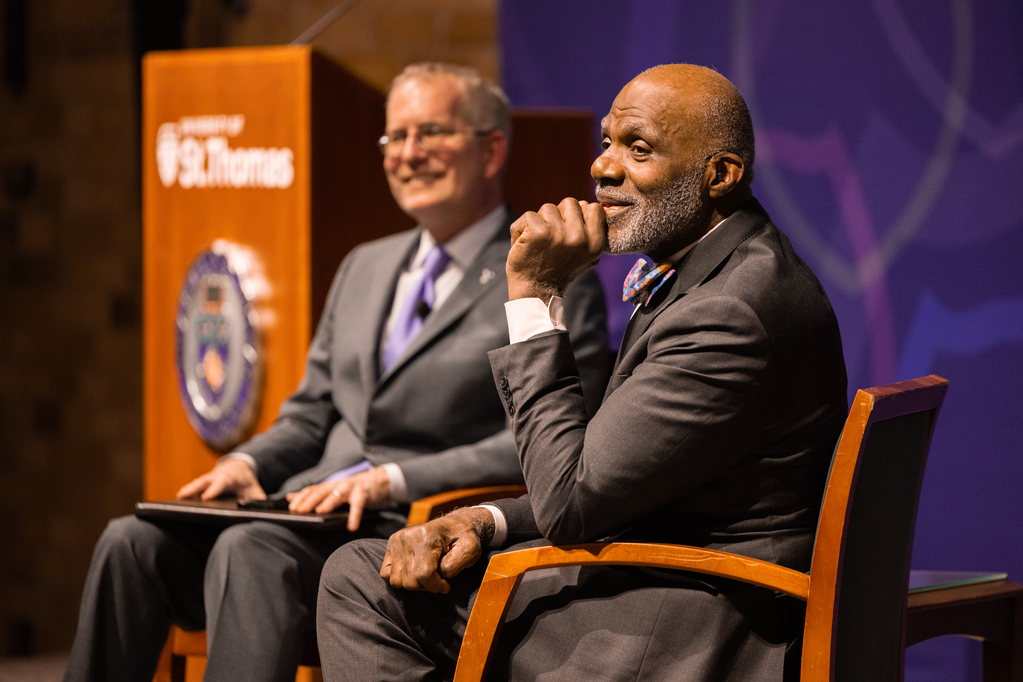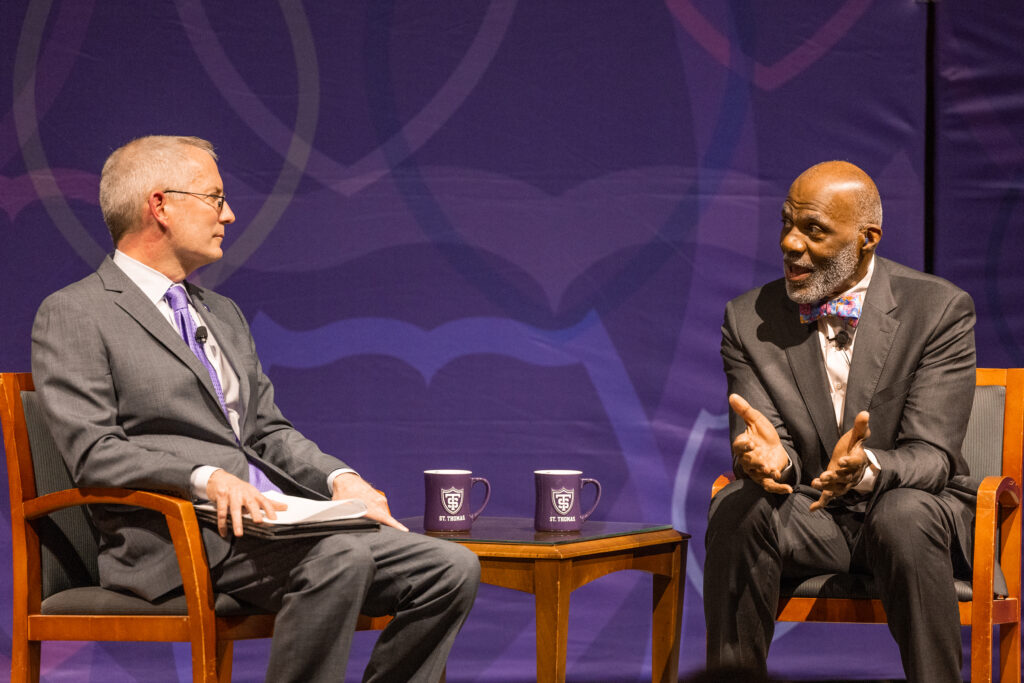As the Dennis Dease era ends at the University of St. Thomas, I am reminded of the tribute paid to Father Dease by John Morrison, a Board of Trustees member who chaired the search committee to find his successor.
“Uncommon decency,” said Morrison. “He’s a man of uncommon decency.”
That describes the man I know – whether he was setting a policy, writing a note or admitting a mistake.
The mistake was back in 2007 when he decided not to invite Nobel Peace laureate Desmond Tutu to campus to speak as part of the Peace Jam celebration. His reason was that Tutu had made remarks offensive to Jewish people in a 2002 speech about Israeli policy toward the Palestinians.
What I recall is a noon hour several days after he made the decision. Congressional candidate Coleen Rowley, a former FBI whistle blower, was standing on the grass in front of the Arches holding one end of a banner that read “Let Tutu Speak.”
A retired WCCO colleague of mine, Roger Nelson, and I were walking by and paused to talk with Rowley and her husband, telling them we supported their point of view and admired their courage. At that very moment, Father Dease walked up to the four of us.
“You can take your sign down,” he said. “I have changed my mind.” He went on to tell Rowley that he had made the wrong decision and now “would be proud to extend an invitation to Archbishop Tutu to speak at UST.” He looked them in the eyes, shook their hands and said he was sorry. Nelson later told me how impressed he was by Dease’s sincerity … and humility.
“How often has any official, public or private, done that (admit a mistake) in the recent past?” Tutu’s supporters later wrote. “The action not only sends a much-needed signal on behalf of academic freedom and the cause of justice and peace worldwide, but it’s a rare example of ethics in action.”
Father Dease never changed his mind about the importance of increasing diversity at UST, most especially providing scholarships to students of color. One of those scholarships went to Laura Lee, a Hmong woman from a big family with a husband and two children of her own when she graduated.
Her mother and father had come to Laura’s December graduation from Missouri and I asked Father Dease whether he could greet them. He not only shook their hands, he spent 15 minutes telling them how proud he was of Laura and how pleased he was to offer aid and assistance.
But his best touch was when he told the Hmong elders that they had done “a fine job” of raising their daughter and St. Thomas was honored to have her as part of its family. Father Dease was both graceful and gracious.
He was also generous with his time and attention to others. They often came in handwritten notes on his office stationery. I got mine two weeks before my surgery for prostate cancer in August 2008. He’d heard about it from others and wanted me to know I was in his thoughts and prayers.
It was that pastoral touch at the end that defines the man for me. “Please let me know if there’s any way I can be of help,” he wrote.
You have been of help, Padre. You’ve taught me what a good man is and what he does.
Editor’s note: Faculty and staff are invited to attend a celebration for Dease from 3 to 5 p.m. Friday in Woulfe Alumni Hall in the Anderson Student Center. A program will begin at 3:30.
